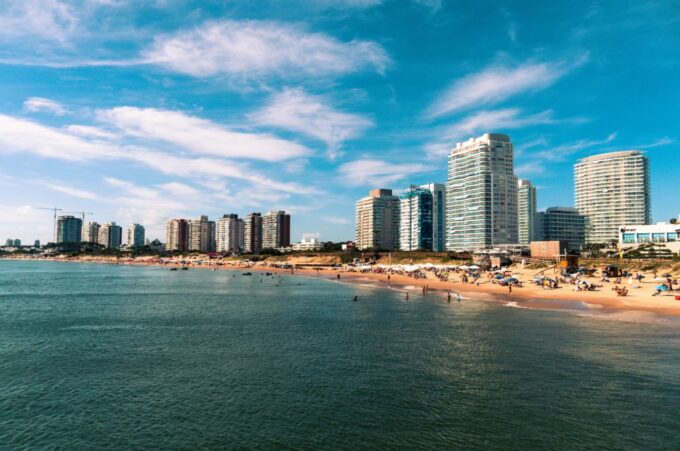Starting a business shouldn’t feel like paying for a yacht you don’t even get to sail. In 2025, there are countries rolling out incentives, low incorporation costs, and tax benefits just to win your business. Whether you’re bootstrapping a startup or going global with a side hustle, picking the right country is more than a financial decision; it’s a strategic one.
Key Highlights
- Several countries now allow full business registration online
- Some offer zero corporate or income tax to new founders
- Setup fees start from as little as $30
- Dubai and Estonia lead with smart digital infrastructure
- Visa and residency rules are more flexible for founders
- Tax efficiency doesn’t mean sacrificing modern amenities
Why Cost Matters More Than Ever in 2025
Business is no longer tethered to where you live. You can manage a team across time zones, work from a co-working space in Bali, and sell digital products to Europe from your couch. But the country where your business is registered still dictates one thing: how much you’ll pay to stay in business.
Some nations are making it almost too easy for entrepreneurs: streamlined registration, remote setup, and light tax burdens. Others still want stacks of paperwork and local partners. Knowing the difference can mean hundreds, or even thousands, saved.
So let’s look at the smart picks.
Dubai – Smart, Slick, and Surprisingly Affordable

Source: techmgzn.com
Dubai isn’t just skyscrapers and shopping malls. When it comes to business formation, it’s one of the most efficient and tax-friendly environments on the planet.
Thanks to numerous free zones and modern licensing policies, a low-cost business setup in Dubai is more accessible than you might think.
What’s appealing?
- 0% income and corporate tax in many free zones
- No requirement for a local sponsor (huge for expats)
- Fast-track licensing and remote options
- Offices, warehousing, and logistics hubs all in one city
And despite its glitz, Dubai offers packages tailored for startups on a budget. It’s the rare combo of affordability and prestige, and yes, it still comes with sunshine and skyline views.
Estonia – Digital Business, Paper-Free Future
Estonia is the quiet tech rebel of Europe. Small in size but big in vision, it was the first to introduce e-Residency, which lets you set up a business in the EU from anywhere in the world.
The process is almost laughably simple:
- Apply for e-Residency online
- Get your secure digital ID
- Register your company, without ever flying there
You’ll pay under €300 for registration, and you only get taxed when you distribute profits. That means reinvested income is tax-free. Ideal for lean startups, remote freelancers, and nomadic teams.
You also get access to EU financial systems, which makes Estonia the perfect “business passport” for digital entrepreneurs.
Georgia – Fast, Cheap, and Founder’s Paradise
Tucked between Europe and Asia, Georgia is gaining fans fast, and not just for its wine and mountains. It’s one of the easiest places to register a company in 2025.
Here’s the kicker: you can register a business in just one day.
Some details worth knowing:
- Registration costs start around $30–$50
- “Small Business Status” gives you just 1% tax on revenue
- English is widely used in business circles
- One-year visa-free stay for many Western citizens
This is a haven for entrepreneurs who want minimal bureaucracy and maximum freedom. The cost of living is low, internet is fast, and the people? Incredibly welcoming.
Vietnam – Hustle, Energy, and Affordability
Vietnam is chaotic in the best way. It’s full of life, ambition, and scooters, and that same energy carries into the startup world.
If you’re looking for:
- Ultra-low operational costs
- A booming digital service economy
- Expanding access to foreign ownership
…then Vietnam delivers. Incorporation typically costs under $100, though navigating the paperwork might require local help. But once set up, you’ll enjoy low rent, a thriving freelancer economy, and some of the best coffee you’ll ever have.
Insider tip: Focus on Ho Chi Minh City for tech or Hanoi for creatives and remote service teams.
Bulgaria – EU Benefits Without the EU Prices

Source: credendo.com
Let’s say you want an official EU company but can’t stomach Western Europe’s costs. Welcome to Bulgaria.
- Corporate tax: 10%
- Personal income tax: also 10%
- Setup costs: roughly €200–€300
- Access to all EU trade and financial systems
This isn’t a flashy destination, but it’s stable, legal, and solid. You get to enjoy all the perks of being an EU company without the economic drama of more expensive markets.
Add to that low salaries and rent (great for hiring locally), and Bulgaria becomes a long-term win for SMEs.
Uruguay – Latin America’s Legal Safe Zone
If you’re looking to tap into the South American market, Uruguay is your safest bet. It’s politically stable, digitally progressive, and offers a generous Free Trade Zone.
Key benefits include:
- Tax breaks inside special economic zones
- Transparent legal framework
- Reasonable business registration fees (around $500 or less)
The cost of living isn’t dirt cheap, but you’re paying for access to a rare combination: Latin American markets with First World legal protections. Spanish is essential, but some digital nomads do just fine with help from a local firm.

Source: weforum.org
Before You Pick a Country…
Not to sound like your overly cautious friend, but do your homework before registering a business abroad. The setup fee isn’t the only cost.
Ask yourself:
- What are the renewal or annual compliance costs?
- Are there hidden service charges or notarization fees?
- What banking options are available for non-residents?
- Is there a tax treaty with your home country to avoid double taxation?
Also, keep an eye on political stability and legal transparency. Cheap isn’t helpful if your profits get tangled in red tape, or worse, frozen in a banking crisis.
Final Thoughts ─ Smart Business Starts with Smart Locations
Affordability and simplicity are the two big advantages when choosing a country to start your business. But don’t chase cheap for the sake of it. Instead, go for strategic affordability, where value, infrastructure, and long-term growth intersect.
In 2025, smart entrepreneurs are going digital, cross-border, and tax-smart. Whether you’re picking Dubai for its free zones, Estonia for its e-residency, or Georgia for its founder-first approach, one thing is clear:
You don’t need a million dollars to start a business, you just need the right map.






